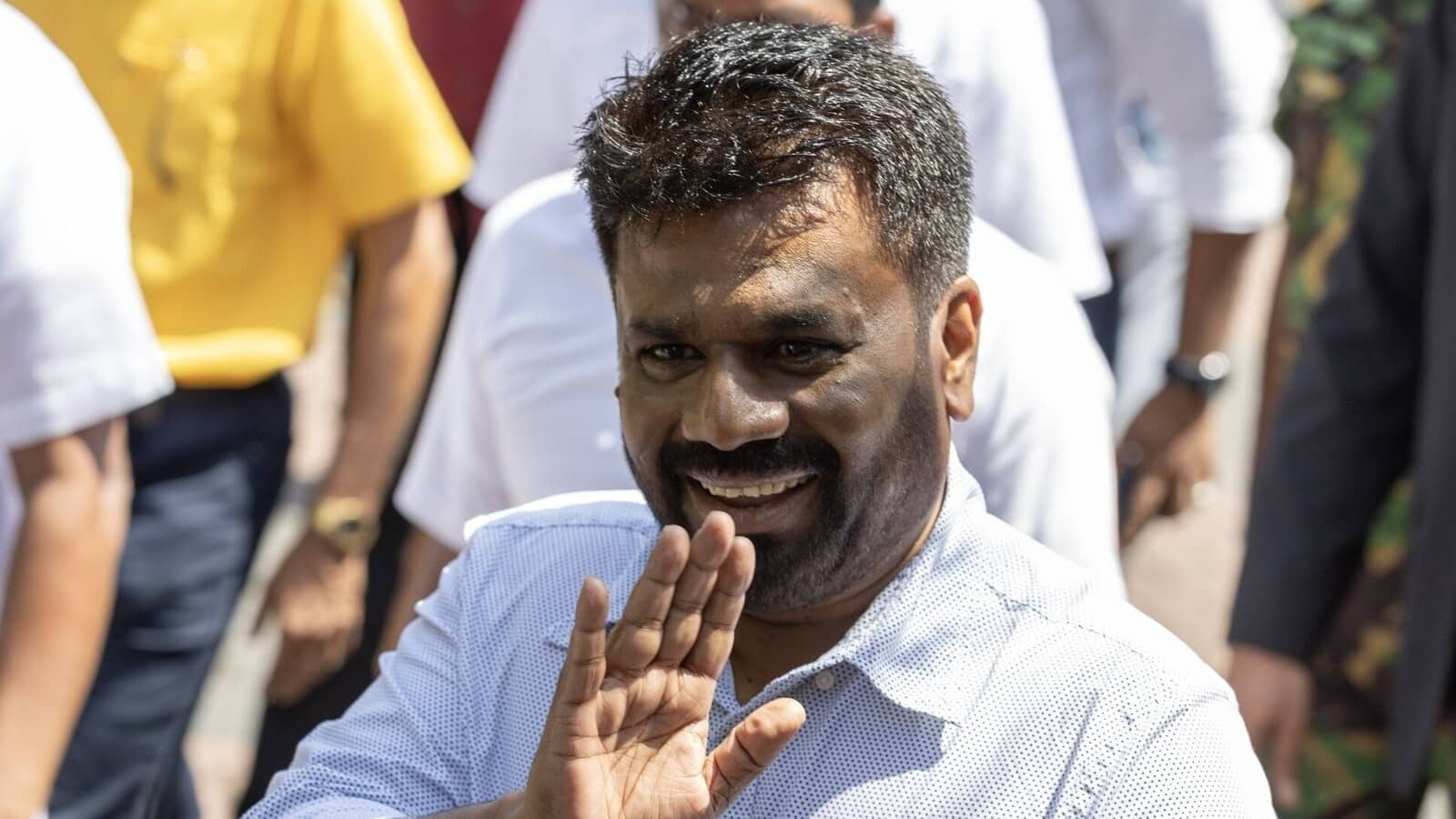
Marxist leader Anura Kumara Dissanayake elected Sri Lanka's new president
What's the story
Anura Kumara Dissanayake, the 55-year-old leader of the People's Liberation Front alliance (JVP), has won Sri Lanka's presidential election. In the first round, no candidate received more than 50% of the total votes, with Dissanayake receiving 42.31% and opposition leader Sajith Premadasa getting 32.76%. However, Dissanayake emerged as the winner in the second count, which tallied voters' second and third choices. He knocked out incumbent President Ranil Wickremesinghe and Premadasa to become Sri Lanka's 10th president.
Election outcome
Dissanayake's victory signals rejection of political establishment
Dissanayake is expected to be sworn in Monday at Colombo's colonial-era Presidential Secretariat. His rise to power signals a rejection of the political establishment blamed for the country's economic downfall. The victory also represents a major turnaround for the JVP, which had received just over 3% of the vote in the 2019 presidential election.
Election statistics
High voter turnout and opposition results
The election saw a voter turnout of 76% with 17 million Sri Lankans eligible to cast their ballots. It was the first in Sri Lanka's history that the presidential contest was decided by a second round of counting after the top two candidates failed to secure the mandatory 50% of votes to be declared winner. The election on Sunday was also the first since mass protests ousted the country's leader, Gotabaya Rajapaksa, in 2022, following Sri Lanka's worst economic crisis.
Twitter Post
'This victory belongs to all of us'
The dream we have nurtured for centuries is finally coming true. This achievement is not the result of any single person’s work, but the collective effort of hundreds of thousands of you. Your commitment has brought us this far, and for that, I am deeply grateful. This victory… pic.twitter.com/N7fBN1YbQA
— Anura Kumara Dissanayake (@anuradisanayake) September 22, 2024
Economic backdrop
Election viewed as referendum on Wickremesinghe's leadership
Furthermore, the election was widely seen as a referendum on Wickremesinghe's leadership during Sri Lanka's fragile economic recovery. His government, which took power in the aftermath of the nationwide uprising in 2022, was tasked with navigating a $2.9 billion International Monetary Fund (IMF) bailout aimed at stabilizing the country's shattered economy. Dissanayake's campaign tapped into public frustration over these measures, promising to renegotiate the terms of the IMF deal to reduce the burden on ordinary citizens.
Geopolitical reassurance
Dissanayake promised voters tough anti-corruption measures
Dissanayake had also promised voters tough anti-corruption measures and good governance—statements that rang true with voters. He pitched himself as the change candidate, vowing to dissolve parliament within 45 days of taking office in order to seek a new mandate for his policies. He must now ensure that Sri Lanka adheres to the IMF program until 2027 in order to put the country's economy on a steady growth path, reassure markets, repay debt, and attract investors.